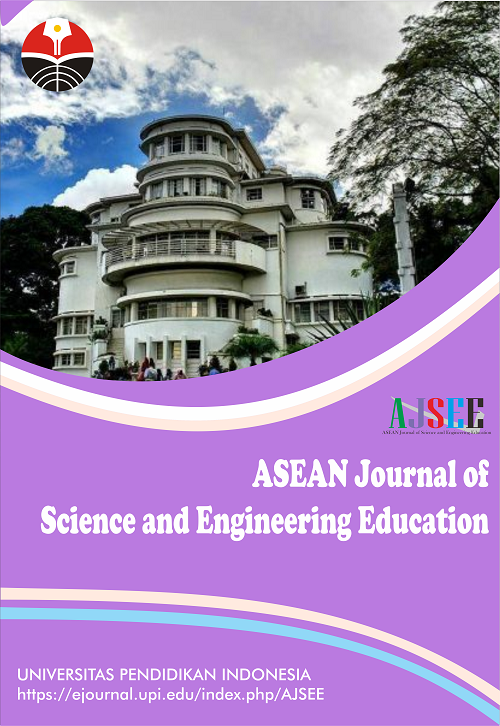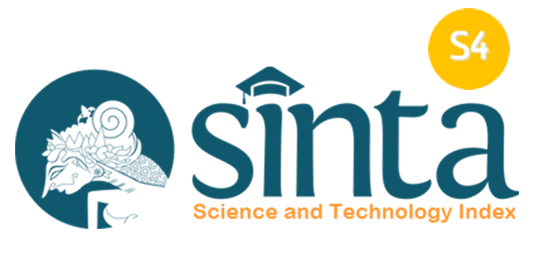Literature Review for Civil Engineering Practice and Technology Innovation in Civil Engineering and Educational Sustainability
Abstract
Keywords
Full Text:
PDFReferences
Alhannom, E., and Mushabeb, G. (2021). Economic growth and carbon dioxide emissions: the environmental kuznets curve hypothesis In Yemen. Iraqi Journal For Economic Sciences, 19(68), 42-58.
AlNuaimi, B. K., Khan, M., and Ajmal, M. M. (2021). The role of big data analytics capabilities in greening e-procurement: A higher order PLS-SEM analysis. Technological Forecasting and Social Change, 169, 120808.
Alshboul, O., Shehadeh, A., Almasabha, G., and Almuflih, A. S. (2022). Extreme Gradient Boosting-Based Machine Learning Approach for Green Building Cost Prediction. Sustainability, 14(11), 6651.
Álvarez, I., Etxeberria, P., Alberdi, E., Pérez-Acebo, H., Eguia, I., and García, M. J. (2021). Sustainable civil engineering: Incorporating sustainable development goals in higher education curricula. Sustainability, 13(16), 8967.
Díaz-López, C., Serrano-Jiménez, A., Verichev, K., and Barrios-Padura, Á. (2022). Passive cooling strategies to optimise sustainability and environmental ergonomics in Mediterranean schools based on a critical review. Building and Environment, 221, 109297.
Ding, G. K. (2008). Sustainable construction—The role of environmental assessment tools. Journal of Environmental Management, 86(3), 451-464.
Durodolu, O. O., and Onaade, O. J. (2018). Informetric growth analysis of engineering research in Nigerian Universities: 2007-2016 survey. Journal of Applied Information Science and Technology, 11, 33-43.
Foster, R. I., Park, J. K., Lee, K., and Seo, B. K. (2022). UK civil nuclear decommissioning, a blueprint for korea's nuclear decommissioning future?: Part II-UK's progress and implications for Korea. Journal of Nuclear Fuel Cycle and Waste Technology (JNFCWT), 20(1), 65-98.
García de Soto, B., Agustí-Juan, I., Joss, S., and Hunhevicz, J. (2022). Implications of construction 4.0 to the workforce and organizational structures. International Journal of Construction Management, 22(2), 205-217.
Hallin, A., Karrbom‐Gustavsson, T., and Dobers, P. (2021). Transition towards and of sustainability—Understanding sustainability as performative. Business Strategy and the Environment, 30(4), 1948-1957.
Haniff, A. P., and Galloway, L. (2022). Modeling strategic alignment in project networks. International Journal of Project Management, 40(5), 517-530.
Hu, L. (2016). Analysis on technological innovation of civil engineering construction. Engineering, 8(05), 287.
Huckle, J., and Wals, A. E. (2015). The UN decade of education for sustainable development: business as usual in the end. Environmental Education Research, 21(3), 491-505.
Karlberg, M., and Bezzina, C. (2022). The professional development needs of beginning and experienced teachers in four municipalities in Sweden. Professional Development in Education, 48(4), 624-641.
Laato, S., Mäntymäki, M., Islam, A. K. M., Hyrynsalmi, S., and Birkstedt, T. (2022). Trends and Trajectories in the Software Industry: implications for the future of work. Information Systems Frontiers, 24(2), 1-16.
Laleye, A. M. (2022). Practical and Technological skills: An inevitable social engineering tool for sustainable development. European Journal of Education and Pedagogy, 3(2), 171-177.
Meka, J. S. (2022). The sustainable development goals and ambedkar. Journal of Positive School Psychology, 6(6), 1026-1040.
Ogunnusi, M., Hamma-Adama, M., Salman, H., and Kouider, T. (2020). COVID-19 pandemic: the effects and prospects in the construction industry. International Journal of Real Estate Studies, 14(Special Issue 2), 120-128.
Ramírez-Montoya, M. S., Loaiza-Aguirre, M. I., Zúñiga-Ojeda, A., and Portuguez-Castro, M. (2021). Characterization of the Teaching Profile within the Framework of Education 4.0. Future Internet, 13(4), 1-17.
Sanusi, Z. A., and Khelghat‐Doost, H. (2008). Regional Centre of Expertise as transformational platform for sustainability: A case study of Universiti Sains Malaysia, Penang. International Journal of Sustainability in Higher Education, 9(4), 487-497.
Stanitsas, M., and Kirytopoulos, K. (2021). Investigating the significance of sustainability indicators for promoting sustainable construction project management. International Journal of Construction Management, 21, 1-26.
Steenwinckel, B., De Paepe, D., Hautte, S. V., Heyvaert, P., Bentefrit, M., Moens, P., and Ongenae, F. (2021). FLAGS: A methodology for adaptive anomaly detection and root cause analysis on sensor data streams by fusing expert knowledge with machine learning. Future Generation Computer Systems, 116, 30-48.
Uchenu, C. A., Okeke-Okonkwo, C. I., and Ifi, C. C. (2019). Improving business education programs through effective school-industry collaboration for nation building. Nigerian Journal of Business Education (NIGJBED), 6(1), 158-171.
Vanjari, P.B. and Kulkarni, S.S. (2022). Building information modeling (BIM) as tool to develop solution for bridge rehabilitation. ASEAN Journal of Science and Engineering, 2(1), 77-90
Wang, X. C., Jiang, P., Yang, L., Van Fan, Y., Klemeš, J. J., and Wang, Y. (2021). Extended water energy nexus contribution to environmentally-related sustainable development goals. Renewable and Sustainable Energy Reviews, 150, 111485.
Warfvinge, P., Löfgreen, J., Andersson, K., Roxå, T., and Åkerman, C. (2022). The rapid transition from campus to online teaching–how are students’ perception of learning experiences affected?. European Journal of Engineering Education, 47(2), 211-229.
Ziervogel, G., Enqvist, J., Metelerkamp, L., and van Breda, J. (2022). Supporting transformative climate adaptation: community-level capacity building and knowledge co-creation in South Africa. Climate Policy, 22(5), 607-622.
DOI: https://doi.org/10.17509/ajsee.v3i2.49738
Refbacks
- There are currently no refbacks.
Copyright (c) 2022 Universitas Pendidikan Indonesia

This work is licensed under a Creative Commons Attribution-ShareAlike 4.0 International License.













